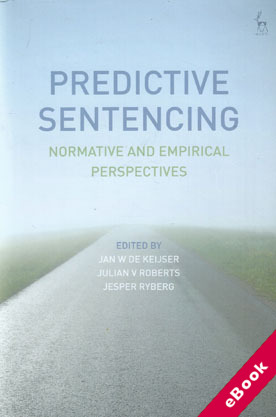
The device(s) you use to access the eBook content must be authorized with an Adobe ID before you download the product otherwise it will fail to register correctly.
For further information see https://www.wildy.com/ebook-formats
Once the order is confirmed an automated e-mail will be sent to you to allow you to download the eBook.
All eBooks are supplied firm sale and cannot be returned. If you believe there is a fault with your eBook then contact us on ebooks@wildy.com and we will help in resolving the issue. This does not affect your statutory rights.
The volume addresses the role of risk assessment in contemporary sentencing practices. Predictive sentencing has become so deeply ingrained in Western criminal justice decision making that despite early ethical discussions about selective incapacitation, it currently attracts little critique.
Nor has it been subjected to a thorough normative and empirical scrutiny. This is problematic since much current policy and practice concerning risk predictions is inconsistent with mainstream theories of punishment.
Moreover, predictive sentencing exacerbates discrimination and disparity in sentencing. Although structured risk assessments may have replaced ‘gut feelings’, and have now been systematically implemented in western justice systems, the fundamental issues and questions that surround the use of risk assessment instruments at sentencing remain unresolved.
This volume critically evaluates these issues and will be of great interesting scholars of criminal justice and criminology working in the area.